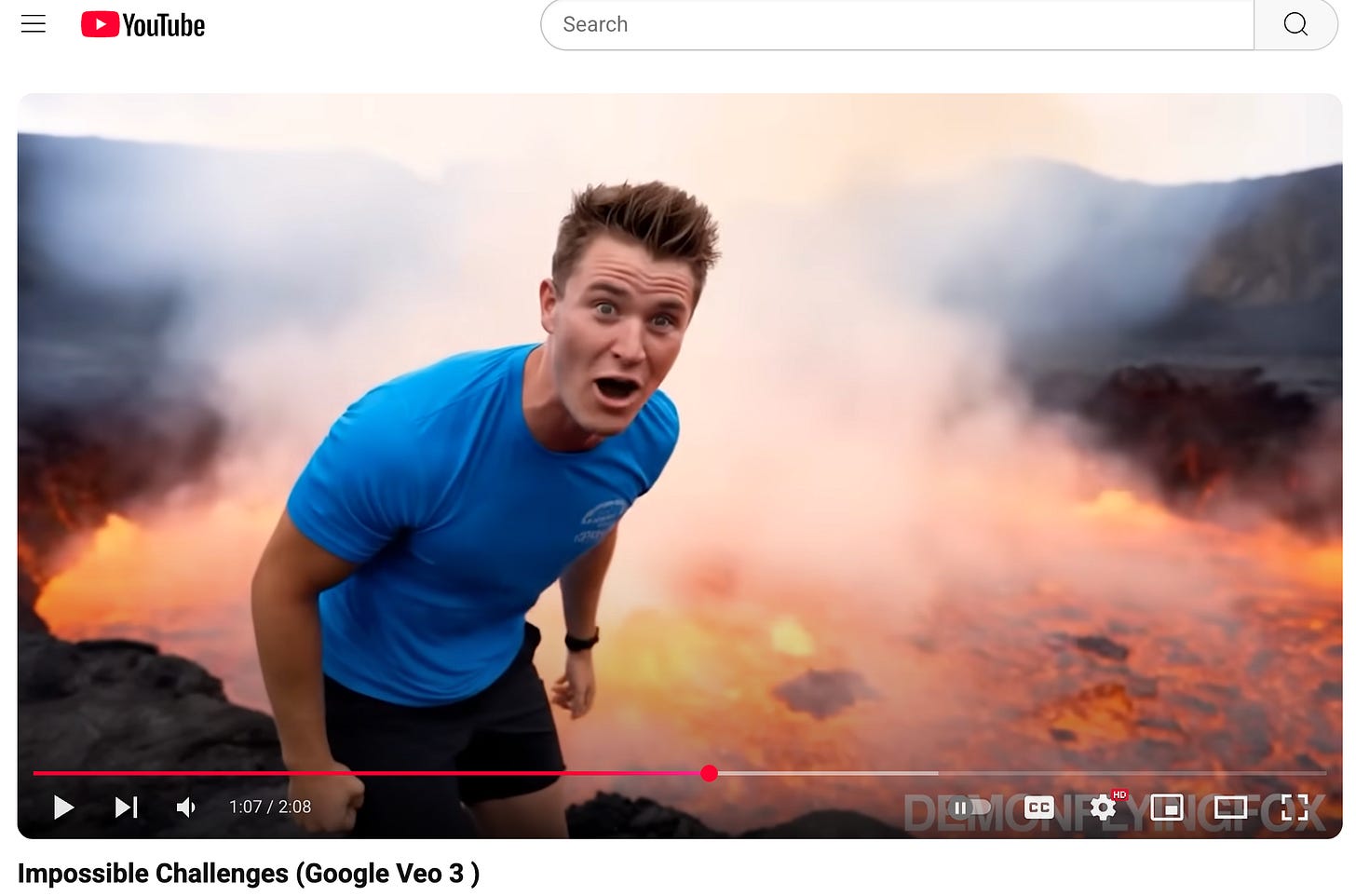Can AI Lift Hollywood Out of Its Funk? Sequoia & Thrive Are Believers
A flight to quality in the AI video era could help indie filmmakers
From Tom Dotan, our senior correspondent, who started his career interning for a producer at Paramount before writing about the Los Angeles startup scene and the rise of Netflix.
If the lifeblood of venture capital is taking long-shot bets, then wagering on the future of an industry as bleak as Hollywood is contrarianism worthy of an Oscar.
And yet, Silicon Valley is becoming enamored with the film business at a time when the sentiment around Hollywood couldn’t be more downcast. Investors believe that AI is about to fundamentally transform the industry — and that the winners will not be the iconic Hollywood studios of yore, but nimble indie film houses and startup AI studios.
On Monday Sequoia announced it was leading a $100 million investment in the London-based arthouse film producer and streaming service Mubi that values it at $1 billion. The deal has echoes of Thrive putting $75 million into the hip independent production company A24 last year at a $3.5 billion valuation. In both cases, VCs are betting that AI can bring major improvements to current operations even as it opens up new creative opportunities.
Other investors are wagering that AI-first video companies built from the ground up will be the Paramounts of tomorrow. Andreessen Horowitz backed an AI studio called Promise, while Greycroft has put money into the AI animation studio Cheehoo. General Atlantic, Google, and Salesforce Ventures have all invested in Runway AI, which develops AI video tools and has a partnership with Lions Gate.
The thesis here is that AI tools can radically reduce production costs, empowering upstart film houses to make movies that look as good as major studio productions.
Savvy studios large and small are quickly embracing AI tools to streamline pre-production and storyboarding, as well as post production, “re-shoots,” subtitling, and other recommendations.
But the jury is still out on whether films with AI-generated “locations” or characters will become mainstream.
Netflix’s co-CEO Ted Sarandos has said that he believes the coming end-to-end AI generated content is more likely to develop as a genre itself rather than take over. A former media streaming exec we spoke with agreed: “End-to-end shows or films will have a specific feel — it’s something that people will want to watch but not as a complete replacement,” this person said.
But investors believe there’s also a different kind of opportunity: the current flood of generic, repetitive short-form videos will prove alienating to many, and spur them to seek out authentic human storytelling. It’s a “flight to quality” that could play into the hands of the more artistic and adventurous film-makers, especially if they can simultaneously reduce costs.
Hollywood’s Financial Mess
To say that the movie industry, and Hollywood as a whole, is in a bad place right now is one of the great — and greatly depressing — realities in the business world. The major studios are in the process of slashing hundreds of jobs and/or getting their debt downgraded to junk bond status as the business model of making movies and running cable networks deteriorates.
For several years, I reported on the media industry, writing about Netflix’s growing dominance and the scramble by traditional studios to catch up. It gave me no joy to cover this decline, especially considering one of my jobs in college was interning for a producer on the fabled, century-old Paramount lot in Hollywood. Today its parent company is being sold for around half the latest valuation of Perplexity.
Streaming brings less money to the big studios than cable networks once did. With the DVD cash-cow long gone, movies needed to make most of their profits from the box office, forcing studios to rely on big-name IP-franchises like the Marvel superheroes that have large built-in fanbases.
Some saw the decline of Hollywood as a bit of a tragedy; Seth Rogen turned it into a great comedy for AppleTV+. For venture investors, it's an opportunity.
It’s far from the first time that Silicon Valley has turned its gaze to entertainment. Netflix reinvented movie distribution as the internet grew, and eventually got into production too, but mostly VCs have a weak track record when it comes to content-creation companies. Funds like Redpoint, Greycroft, and Upfront Ventures invested in YouTube multichannel networks like Machinima and Maker Studios, for example, and they ultimately flopped.
Tech investors seemed chastened by their experiences at the time, but AI has them rethinking the possibilities.
Tools like OpenAI’s Sora or Google’s Veo, can already create impressively realistic video clips and have gone viral for their eerie verisimilitude. While we’re not there yet, the idea is that AI could help an independent film company make something like a period piece without the enormous cost of building soundstages to replicate the historical setting.
Thrive’s A24 investment is the clearest expression of that strategy. Josh Kushner, who is also the point person for the firm’s bet on OpenAI, has joined the board. This year A24 hired Scott Belsky, the former chief product officer at Adobe, who became its newest partner and is leading its tech charge.
“They’re not technologists by background,” said Thrive’s Avery Klemmer of the A24 crew. “But that’s actually why I think they were excited about partnering with us, because they were like, ‘we know we need to, to some extent, reinvent ourselves.’”



